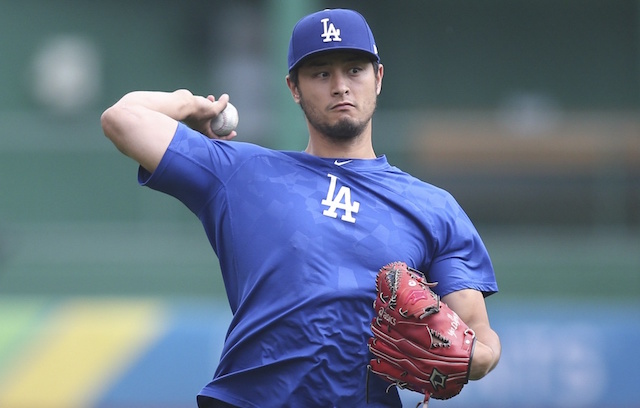When the July 31 non-waiver trade deadline rolled around, the Los Angeles Dodgers held the best record in baseball by a comfortable margin. They nonetheless were in the market to fine-tune their roster, with eyes on the likes of Zach Britton, Yu Darvish, Sonny Gray and Brad Hand, among others.
There was doubt as to whether the Texas Rangers would part with their longtime ace, but a deal with the Dodgers was reached with little time to spare on deadline day. “Sometimes you need that hard deadline to get something done,” Dodgers general manager Farhan Zaidi said during an appearance at Dodgers All-Access.
“We always had a notion of what we’d be willing to do and what they’d be looking for. I will say that leading up to the last couple days of the deadline, even that morning, there were moments we thought this may not happen.
“We continued to stay in touch, made calls back and forth, shot each other a couple texts, just to try to keep things going.”
Dodgers president of baseball operations Andrew Friedman expressed a similar sentiment. “We had a lot of different conversations going,” he said.
“It’s funny, because on the 29th or 30th you can feel like you have a lot of momentum going one way and then something happens an hour later and you focus a different direction.”
While reports indicated the Rangers were wrestling over whether or not to trade Darvish, the Dodgers believed he would be moved, because of his looming free agency. “We felt pretty strongly they were going to trade him,” Friedman said.
“With the changes to the Collective Bargaining Agreement, they wouldn’t get a first-round pick for him. We felt strongly that we had a deep enough farm system where we’d be very, very competitive.”
Whereas a team would receive a compensation pick between the first and second rounds for a player who rejected the qualifying offer and signed elsewhere as a free agent, the value of a compensation pick is now dependent on the value of the contract and which team said player joins.






